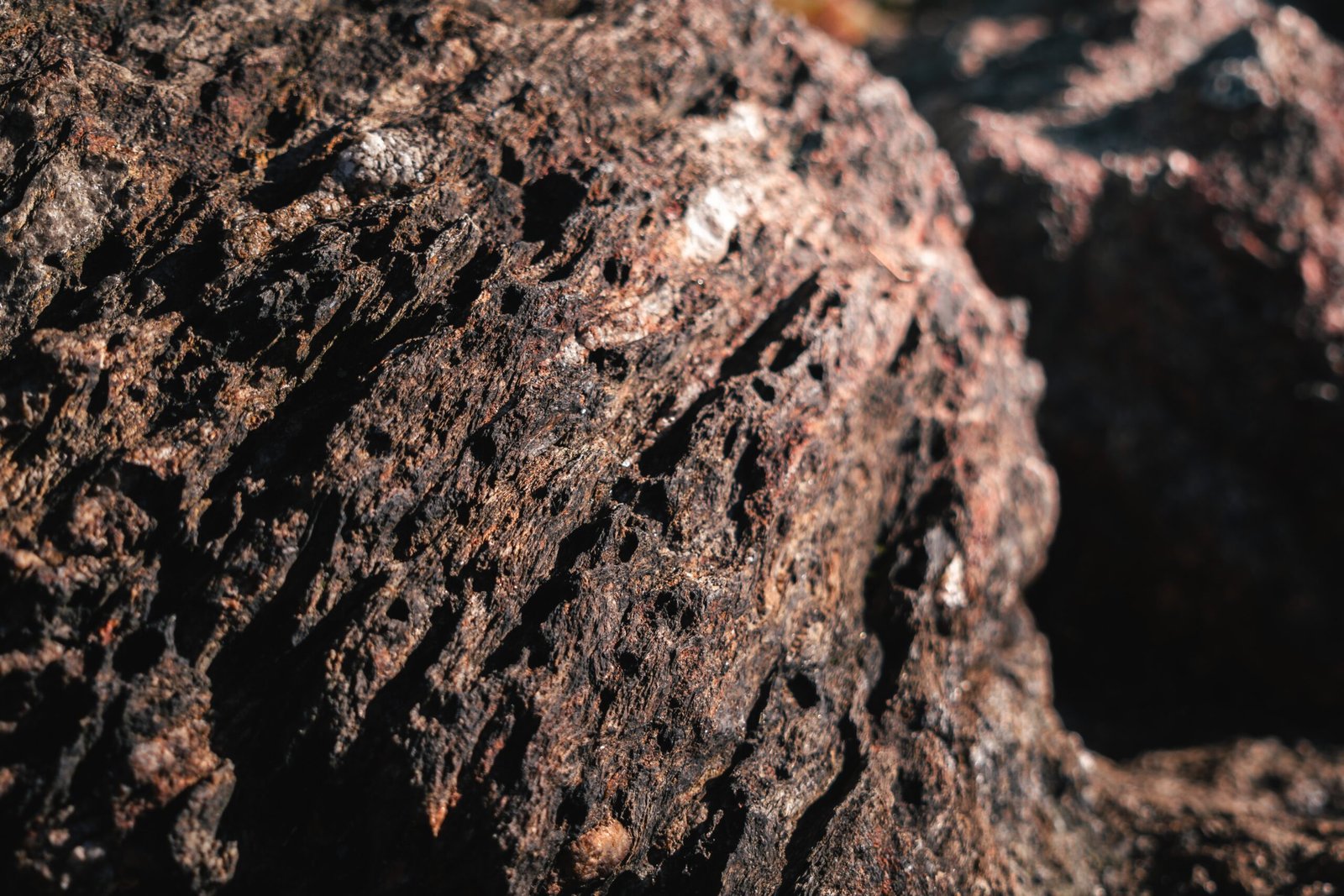Did you know that there is a complex relationship between oxalate and vitamin C? Both of these compounds play important roles in our bodies, but consuming large amounts of vitamin C can actually lead to the formation of oxalate crystals. These crystals can then accumulate in the kidneys and potentially lead to the development of kidney stones. So while it’s important to get enough vitamin C for its many health benefits, it’s also crucial to be mindful of your intake to prevent any unwanted complications. In this article, we’ll explore this fascinating connection between oxalate and vitamin C, and discover how to strike the right balance for optimal health.

This image is property of images.unsplash.com.
What is Oxalate?
Definition
Oxalate is a naturally occurring compound found in many plant-based foods. It is produced by the body as a metabolic byproduct, but it is also obtained through dietary sources. Oxalate can bind with calcium to form crystals, which can accumulate in the body and potentially lead to health issues.
Sources of Oxalate
Oxalate is found in various foods, including beets, rhubarb, spinach, Swiss chard, cocoa powder, almonds, and tea. It is important to note that oxalate content can vary greatly among different foods and even within the same food group. Cooking methods such as boiling or steaming can help reduce oxalate levels in certain foods.
Health Effects of Oxalate
Consuming foods high in oxalate can contribute to the formation of kidney stones. When oxalate combines with calcium in urine, it can form crystals that may eventually lead to stone formation. Additionally, excessive oxalate consumption may interfere with calcium absorption and potentially increase the risk of developing calcium deficiencies.
Oxalate Related Disorders
Hyperoxaluria is a condition characterized by excessive oxalate production or absorption by the body. This can increase the risk of calcium oxalate kidney stone formation and potentially lead to other health complications. Oxalate poisoning, although rare, can occur if an individual ingests a large amount of oxalate-containing substances.
What is Vitamin C?
Definition
Vitamin C, also known as ascorbic acid, is a water-soluble vitamin that plays a crucial role in maintaining overall health. It is an essential nutrient, meaning it cannot be produced by the body and must be obtained through dietary sources or supplements.
Sources of Vitamin C
Vitamin C is found in various fruits and vegetables, such as citrus fruits, berries, kiwi, peppers, and broccoli. It is important to note that vitamin C is sensitive to heat and can be easily destroyed during cooking or food processing. Therefore, consuming fresh, raw fruits and vegetables is the best way to ensure an adequate intake of vitamin C.
Recommended Daily Intake
The recommended daily intake of vitamin C varies depending on factors such as age, sex, and overall health. For adults, the recommended daily amount is typically around 75-90 milligrams. However, individuals with certain medical conditions, such as smokers or pregnant women, may require higher doses of vitamin C.
Health Benefits of Vitamin C
Vitamin C has numerous health benefits. It is a potent antioxidant, which means it helps protect the body against free radicals and oxidative stress. It also plays a critical role in immune system function, collagen production, iron absorption, and wound healing. Vitamin C is essential for maintaining overall health and vitality.

This image is property of images.unsplash.com.
Interaction between Oxalate and Vitamin C
Vitamin C Conversion to Oxalate
When consumed in excess, vitamin C can be converted into oxalate in the body. This conversion occurs primarily in individuals with compromised kidney function, as the kidneys play a crucial role in oxalate metabolism. Therefore, it is important for individuals with kidney issues or a history of calcium oxalate kidney stones to monitor their vitamin C intake.
Effect of Heat on Oxalate Content
While heat can destroy vitamin C, it does not significantly impact the oxalate content in foods. Therefore, cooking methods such as boiling or steaming may help reduce the vitamin C content in certain foods, but it does not lower the oxalate levels.
Vitamin C and Kidney Stones
There is a potential link between high vitamin C intake and an increased risk of calcium oxalate kidney stone formation. Vitamin C can be converted into oxalate, and if consumed in excess, it can contribute to the accumulation of oxalate crystals in the kidneys. However, more research is needed to fully understand this relationship.
Potential Risks of High Oxalate Intake with Vitamin C
Combining high oxalate intake with high vitamin C intake may pose an increased risk for individuals prone to calcium oxalate kidney stone formation or those with kidney complications. It is important to speak with a healthcare professional before making any significant dietary changes or starting supplementation.
Role of Oxalate in Health
Calcium Oxalate Kidney Stones
Calcium oxalate kidney stones are the most common type of kidney stones and are often associated with high oxalate levels in the urine. When oxalate binds with calcium, it can form crystals that eventually develop into stones. Managing oxalate intake is crucial for individuals prone to kidney stones.
Hyperoxaluria
Hyperoxaluria is a condition characterized by excessive oxalate production or absorption by the body. This condition can increase the risk of kidney stone formation and other urinary tract issues. A low-oxalate diet and proper medical management are typically recommended for individuals with hyperoxaluria.
Oxalate Poisoning
Oxalate poisoning, although rare, can occur if an individual ingests a large amount of oxalate-containing substances. Symptoms of oxalate poisoning include gastrointestinal disturbances, kidney injury, and electrolyte imbalances. Seeking medical attention is crucial if oxalate poisoning is suspected.
Oxalate in Foods
Oxalate is naturally present in many plant-based foods, and its levels can vary significantly. Foods such as spinach, rhubarb, and almonds are particularly high in oxalate. It is important for individuals prone to calcium oxalate kidney stones or hyperoxaluria to monitor their oxalate intake and make informed dietary choices.

This image is property of images.unsplash.com.
Importance of Vitamin C
Antioxidant Properties
One of the key roles of vitamin C is its antioxidant properties. It helps neutralize harmful free radicals in the body, reducing oxidative stress and protecting cells from damage. Adequate vitamin C intake is essential for overall health and longevity.
Immune System Function
Vitamin C plays a crucial role in supporting a healthy immune system. It enhances the production and function of immune cells, helping the body fight off infections and illnesses. Regular intake of vitamin C is particularly important during times of increased stress or when the immune system may be compromised.
Collagen Production
Collagen is a critical protein that provides structural support to various tissues in the body, including the skin, bones, and blood vessels. Vitamin C plays a vital role in the synthesis of collagen, helping maintain the health and integrity of these essential structures.
Iron Absorption
Vitamin C enhances the absorption of non-heme iron, which is the type of iron found in plant-based foods. By consuming vitamin C-rich foods alongside iron-rich foods, individuals can optimize their iron absorption and prevent deficiencies, particularly in those following a vegetarian or vegan diet.
Wound Healing
Vitamin C is an important nutrient for wound healing. It is involved in the production of collagen and other proteins necessary for tissue repair. Adequate vitamin C intake can speed up the healing time of wounds and promote optimal recovery.
Effects of Oxalate on Human Health
Kidney Stone Formation
The primary health concern associated with high oxalate intake is the formation of kidney stones. When oxalate combines with calcium, it can form crystals that accumulate in the kidneys. This can lead to painful kidney stones that require medical intervention.
Calcium Absorption Interference
Excessive oxalate intake may interfere with the absorption of calcium in the body. Calcium is essential for maintaining strong bones and teeth, and a disruption in its absorption can increase the risk of calcium deficiencies and related health issues.
Gastrointestinal Symptoms
Consuming high-oxalate foods can lead to gastrointestinal symptoms in some individuals. Symptoms may include abdominal pain, bloating, diarrhea, and in severe cases, malabsorption of essential nutrients. It is important to listen to your body and make dietary adjustments if necessary.
Recommended Intake of Oxalate
Factors Affecting Oxalate Absorption
The absorption of oxalate from food can vary based on individual factors such as gut health, genetic predisposition, and overall diet composition. It is important to note that high-oxalate foods may not necessarily translate to high oxalate absorption. Monitoring symptoms and individual tolerance is key.
Low Oxalate Diet
Individuals at risk for calcium oxalate kidney stones or those with hyperoxaluria may benefit from a low-oxalate diet. This involves limiting high-oxalate foods and focusing on a well-balanced diet that includes a variety of nutrient-rich foods.
Oxalate Content in Various Foods
Understanding the oxalate content in different foods can help individuals make informed dietary choices. Some low-oxalate food options include bananas, grapes, cucumbers, and white bread. High-oxalate foods include spinach, rhubarb, beet greens, and chocolate. Working with a healthcare professional or dietitian can help create a personalized meal plan.
Recommended Intake of Vitamin C
Age-Specific Requirements
The recommended daily intake of vitamin C varies based on age. For example, infants require significantly less vitamin C compared to adults. The appropriate intake levels for each age group can be determined with the guidance of healthcare professionals or by referring to reputable dietary guidelines.
Smokers and Vitamin C
Smoking increases oxidative stress in the body, leading to a higher demand for vitamin C. Smokers may require higher doses of vitamin C to support their body’s antioxidant defense system. Quitting smoking altogether is the best way to reduce oxidative stress and improve overall health.
Pregnancy and Lactation
During pregnancy and lactation, vitamin C requirements increase due to the demands of fetal growth and milk production. Adequate vitamin C intake is crucial for the health and development of both the mother and the baby. Prenatal supplements and a well-balanced diet should be encouraged.
Supplement Use
In some cases, individuals may need to supplement their vitamin C intake to meet their daily requirements. This could be due to dietary restrictions, medical conditions, or specific health goals. It is important to consult with a healthcare professional before starting any new supplementation regimen.
Food Sources
While supplements can be a convenient way to ensure adequate vitamin C intake, obtaining nutrients from whole foods is generally recommended. Consuming a variety of fruits and vegetables, such as citrus fruits, berries, and leafy greens, can provide a natural and well-absorbed source of vitamin C.
Optimizing the Combination of Oxalate and Vitamin C
Achieving a Balanced Diet
A balanced diet that includes a variety of nutrient-rich foods is crucial for overall health. By incorporating both high-oxalate and vitamin C-rich foods into a well-balanced meal plan, individuals can benefit from the unique health properties of each nutrient while minimizing potential risks.
Consulting Healthcare Professionals
If you have specific dietary concerns or medical conditions related to oxalate or vitamin C, it is important to consult with a healthcare professional. They can provide personalized advice and guidance based on your individual needs and health history.
Monitoring Oxalate and Vitamin C Levels
Monitoring oxalate and vitamin C levels may be necessary for individuals with certain health conditions, such as a history of kidney stones or hyperoxaluria. Regular blood tests and urine analysis can help track these levels and inform dietary adjustments if needed.
Strategies for High-Oxalate Diets
For individuals who require a high-oxalate diet due to medical conditions or other reasons, there are strategies to minimize potential risks. These include balancing oxalate intake with calcium-rich foods, staying adequately hydrated, and working with a healthcare professional to tailor dietary choices.
Recommended Supplementation Practices
If vitamin C supplementation is necessary, it is important to choose reputable brands and follow recommended dosage guidelines. Avoid excessive doses of vitamin C, as this can increase the risk of adverse effects. Always consult with a healthcare professional before starting any new supplementation regimen.
Conclusion
Key Takeaways
Oxalate is a naturally occurring compound found in many plant-based foods. Consuming high oxalate foods can contribute to the formation of kidney stones and interfere with calcium absorption.
Vitamin C is an essential nutrient with numerous health benefits, including antioxidant properties, immune system support, collagen production, iron absorption, and wound healing.
Excessive vitamin C intake can be converted to oxalate in the body, potentially increasing the risk of kidney stone formation in susceptible individuals.
Balancing oxalate and vitamin C intake is important for optimizing health and minimizing potential risks. Consulting healthcare professionals, monitoring levels, and maintaining a well-balanced diet are key strategies for achieving this balance.
Overall Recommendations
It is recommended to consume a well-balanced diet that includes a variety of fruits, vegetables, and nutrient-rich foods to obtain adequate levels of both oxalate and vitamin C. Monitoring intake and seeking professional guidance when necessary can help individuals optimize their health and reduce the risk of complications associated with excessive oxalate or vitamin C consumption.

